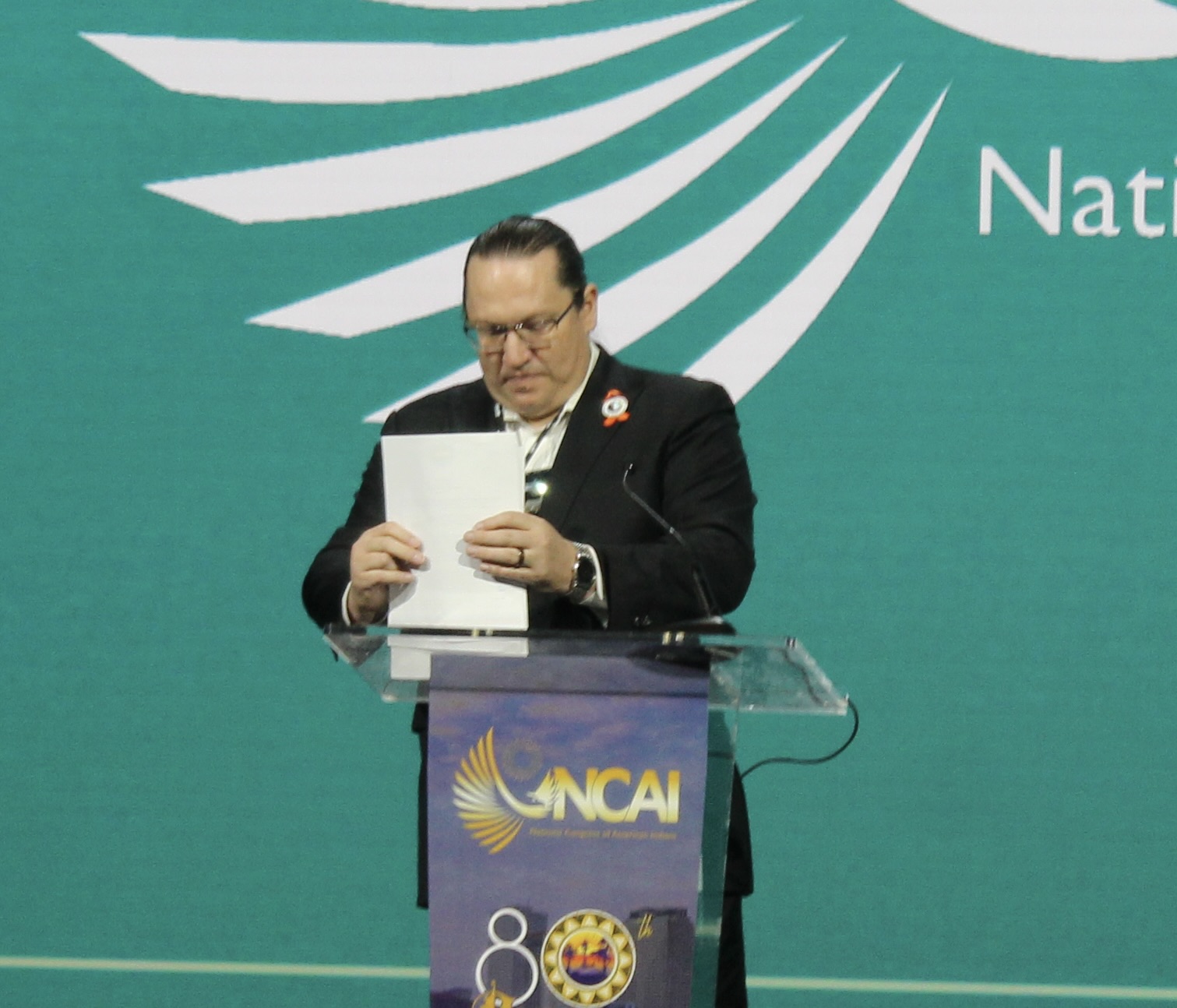
- Details
- By Principal Chief Michele Hicks and Chief Ben Barnes
Guest Opinion. This week, the Annual Convention of the National Congress of American Indians (NCAI) in New Orleans, Louisiana, will hear proposed amendments to the NCAI Constitution.
Under the current NCAI Constitution, “tribes” proven to have no Native ancestry have the same voice and voting power as those tribes who have existed since time immemorial. The proposed amendments would ensure only groups included on the Federally Recognized Indian Tribe List Act would have the ability to vote in the organization.
Opponents of the proposed amendments have said that the federal government does not determine who is Indian; Indians do. They are right about that. Sovereign tribes determine who their people are. The Eastern Band of Cherokee Indians, the Shawnee Tribe, and countless other federally recognized tribes are pleading with you to listen when we tell you that these groups, like the “Piqua Shawnee,” the “Georgia Tribe of Eastern Cherokee,” and the “Texas Cherokee” are not our people. They falsely claim our culture, heritage, art, language, and traditions, but they are not us—and current NCAI rules reward them and treat them as though they are.
This is wrong.
That is why inter-tribal organizations representing over 150 tribes have unanimously voted to support these amendments, including the Coalition of Large Tribes (COLT), Great Plains Tribal Chairman’s Association (GPTCA), Affiliated Tribes of Northwest Indians (ATNI), United Indian Nations of Oklahoma (UINO), Inter-tribal Council of the Five Civilized Tribes, Association of Village Council Presidents (AVCP) in Alaska representing 56 federally recognized tribes.
NCAI was created to protect the sovereignty of treaty and trust tribes, and it has strayed from its mission. NCAI’s founders could not have predicted the plague of deception and theft of our Indian identities. A lot has changed since state groups were admitted to NCAI in 1971. There are now hundreds of groups that falsely claim to be tribes. Some of them base their claims on state recognition processes that have proven themselves to be inadequate to verify even minimal claims to be a tribe.
Sadly, the current NCAI constitution legitimatizes these groups and, in doing so, helps them perpetrate their cultural appropriation. Fake tribes take their NCAI membership to governments, politicians, non-profits, and news outlets. Pretending to speak as us and for us, they push for policies that are harmful to federally recognized tribal nations. They seek ownership of our land, ICWA rights to our children, access to our sacred items, and consultation on our sacred sites. They receive hundreds of millions of dollars in funding intended to help struggling tribal nations. These groups even seek to take custody of our ancestors’ remains.
Even opponents to these amendments concede that fake groups holding membership in NCAI are a problem. They concede that these groups are a threat. They acknowledge that this has been a problem for decades. Yet, they offer no real solution. Instead, the attempt to defend the indefensible—the status quo.
That simply is not good enough. It is time for change.
We urge every voting member of NCAI to stand with us to uphold tribal sovereignty, protect tribal cultures, defend tribal identities, oppose cultural appropriation, protect tribal voices, and vote yes to these proposed amendments.
Michele Hicks, is the principal chief of the Eastern Band of Cherokee Indians and Ben Barnes is the chief of the Shawnee Tribe.
Help us defend tribal sovereignty.
At Native News Online, our mission is rooted in telling the stories that strengthen sovereignty and uplift Indigenous voices — not just at year’s end, but every single day.
Because of your generosity last year, we were able to keep our reporters on the ground in tribal communities, at national gatherings and in the halls of Congress — covering the issues that matter most to Indian Country: sovereignty, culture, education, health and economic opportunity.
That support sustained us through a tough year in 2025. Now, as we look to the year ahead, we need your help right now to ensure warrior journalism remains strong — reporting that defends tribal sovereignty, amplifies Native truth, and holds power accountable.
 The stakes couldn't be higher. Your support keeps Native voices heard, Native stories told and Native sovereignty defended.
The stakes couldn't be higher. Your support keeps Native voices heard, Native stories told and Native sovereignty defended.
Stand with Warrior Journalism today.
Levi Rickert (Potawatomi), Editor & Publisher

